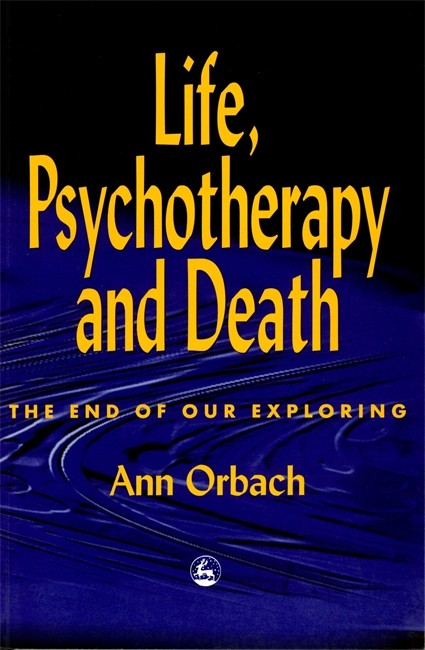1. All Must Die. No escape. Seeking therapy on the way to death. To be or not to be - is there a death instinct? 2. Out of Season. Fragile beginnings. What children know and what they can talk about. Answering children's questions. The first bereavements. Jonathan's story. Children who die. Parents whose children die. Slaughter of the innocents. The story of two mothers. 3. A Plague Called AIDS. Pandemic. What is AIDS and where does it come from? Health education, tests and counselling. Perry's story. AIDS in the family. 4. Sudden Death. Death by proxy. Meeting the shadow. Murder in mind. Forensic psychotherapy. Working with murderers. Capital punishment - the outcasts. Suicide. Suicide, psychotherapy and the saving of souls. Euthanasia. War. The manner of our dying. 5. Slow Death. Terminal illness. To tell or not to tell? Natural death. Where to die. Fear. 6. Partly Living. To eat or not to eat? The dying brain. The death of meaning. 7. In Fullness of Time. Being old. Dying of old age. Life review. Counselling, psychotherapy, analysis. 8. A Time to Mourn. Mourning on the way to death. Each bereavement is unique. Funeral options. 9. On the Edge. Dreams of death. View from the edge. 10. Who Dies? Ego. Self. Body, soul and spirit. Individuation. Can we still believe in an afterlife? Appendix. References. Index.
Request Academic Copy
Please copy the ISBN for submitting review copy form
Description
Ann Orbach's book is a wide exploration into the way people face death as the dying and bereaved. It is a book that is not content to stay with the psychotherapist's narrative but steps out confidently into philosophy, theology and some of the very practical issues that mortality presents illustrated with case studies, research, poetry and prose. This is not a work that dwells upon any particular aspect of mortality - there is fleeting reference to some of the major theories of bereavement and brief mention of important psychological concepts - but there is a wholeness to the book which leaves one, if not better informed, then more aware of how fruitful it can be at times to step over conventional boundaries. This is a book then not so much of information but, as the subtitle suggests, of exploration, and one which depends little on a prior understanding of psychotherapy. It should be helpful to those who are professionally involved in the lives of the dying and the bereaved and who have the curiosity to step over their own boundaries in order to appreciate less familiar perspectives and insights.

